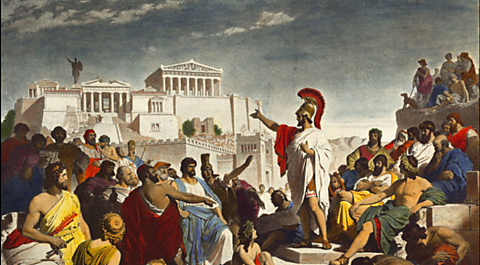Chris Edwards
Local government corruption comes in many flavors, as we found in summarizing 15 recent cases. A news story from Baltimore alerts me to yet another method of corruption: officials taking bribes to cancel debts owed to the government.
In Baltimore’s Department of Finance, employee Joseph Gillespie accepted $250,000 in bribes from city residents for canceling or postponing their payments for taxes, citations, and water bills.
Gillespie’s bribe-taking continued unabated for 8 years (2016–2023), losing the city at least $1.25 million. His scheme worked by simply entering false data on the city’s outdated computer systems, sometimes with the help of other employees. Gilliespie was recently sentenced to jail.
After scamming the city for years without being caught, Gillespie was emboldened to steal from federal COVID-19 relief funds. With a co-conspirator, he submitted fake data on an application form and received $138,000 in business relief aid in 2021.
Why didn’t Baltimore stop Gillespie’s lawbreaking earlier? Baltimore finance officials are pointing to the city’s 40-year-old software, minimal security, and limited audit trails. A city auditor had earlier raised the issue of Gillespie’s suspicious activities, but no one followed up.
Stopping such straightforward bribe-taking should be a solvable problem. It is baffling why so many American cities apparently have not put basic safeguards in place.
How about installing the system of “euthunai” practiced in ancient Athens? At the end of their tenures, Athenian officials underwent reviews of their actions and financial audits to uncover any corruption, such as embezzlement and bribe-taking. All types of officials were subject to these and numerous other personal accountability mechanisms.
For appointed and elected government officials today, knowing that a detailed end-of-tenure audit is coming would both dissuade theft and discourage dishonest people from seeking government office in the first place.
Aristotle said, “For the people do not take any great offence at being kept out of the government … but what irritates them is to think that their rulers are stealing the public money.” Still true more than 2,300 years later.









